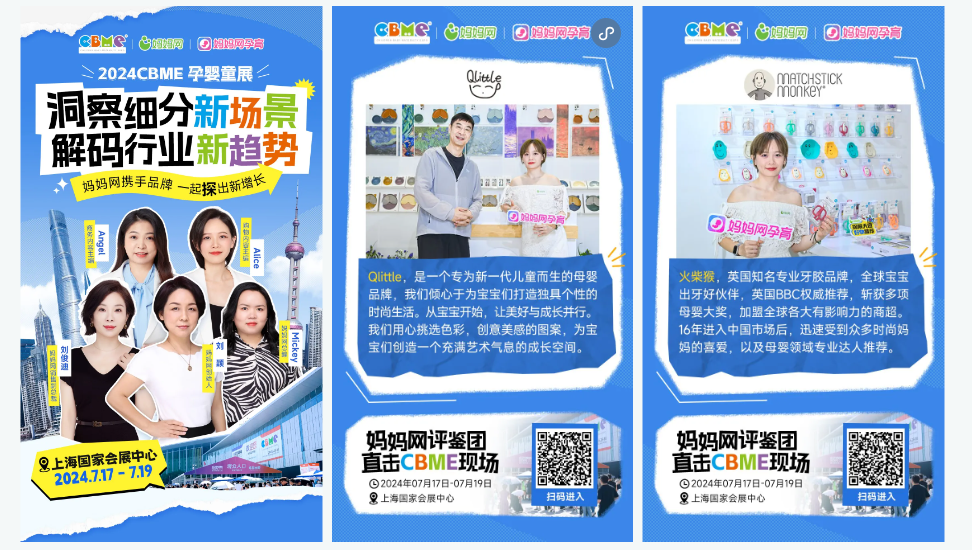Published by Daxue Consulting
China's baby care industry is experiencing all-around growth
The size of the baby care industry in China growing with a high speed, with its compound annual growth rate expected to reach 14.5% by 2023, according to Mintel China. Considering China’s recent easing of the One Child Policy in 2016, accompanied by the growing household income of Chinese families, the baby care market has seen consistent growth through both online and offline distribution channels. While foreign brands are still favored, especially when considering baby milk formula, domestic competition in China’s baby care market has tightened in the recent years, including sales of other child care related products such as strollers, bottles, baby seats, cribs, and baby clothing. Although offline channels such as supermarkets and dedicated baby care stores are still the main distributors, the growing online presence of the industry both in e-commerce and social media seems to point to a promising future for the baby care market in China.
[Source: qianzhan statistics “Market size of the age 0-3 baby care market”]
With increasing competition among Chinese companies, there is also a promising future for the growth of the domestic baby care market
Due to a history of national scandals relating to China’s baby care industry, most infamously regarding baby formula, the domestic sector of the baby care market is still under backlash. While foreign companies still dominate the Chinese baby care market, Chinese companies have slowly been climbing its way up in sales. New demands from a population of parents with higher income also pose future opportunities for Chinese companies. As more parents are willing to spend their income on pampering their children, there is a higher demand of child-specific products, thus offering one angle for domestic companies to enter the Chinese market.
The increasing demand for baby skin care products such as shower gels and lotions, particularly in offline channels, has led to domestic companies accommodating to this consumer desire. An advertisement from Frog Prince, a leading Chinese baby care company, emphasizes the safety of beneficial qualities for the baby skin. The shower gel states its natural ingredients of wheat germ oil and olive oil extract to achieve “gentle nourished and soft skin.” Particularly in the segment of baby skin care, consumers are more willing to pay higher prices not only for safety but for extra nourishing benefits. On the other hand, a Johnson & Johnson campaign, seen at a supermarket in Shanghai, seems to emphasize the loving relationship between a mother and child more as opposed to safety, though the foreign brand is deemed one of the safest brands by consumers in China.
Baby-dedicated stores are prominent in China
“Most of the sales hold that offline store is still the dominant channel for baby care products and half of the sales consider it’s still growing.”—Yixiang Zhang, Daxue Consulting project manager
While online penetration is the main source of distribution for foreign brands and other segments of baby goods such as toys and diapers, offline distribution channels are still the dominant channel for the baby care market. Places such as supermarkets and dedicated baby stores are very attractive to consumers as they are able to set into the store and experience products for their children first hand.
[Source: Daxue Consulting]
In Shanghai, the most popular dedicated store is Babe Max, with 85 store locations, followed by Lessenphants, with 54 stores.
The expansion of the Chinese market for baby care provides lots of protentional for domestic and foreign companies alike. As Chinese consumers are highly sensitive to the perceived safety of foreign brands, foreign brands should take advantage of the gap in this sector as the demand for baby care items continue to increase. Its heightened presence in social media and e-commerce demonstrates effective inlets for entry as foreign brands abroad. While the birth rates have not increased significantly since the end of the One Child Policy, with the growth of the baby care industry, as well as an increasing attitude of pampering towards children, further growth is expected in the future in all sectors relating to baby care.









